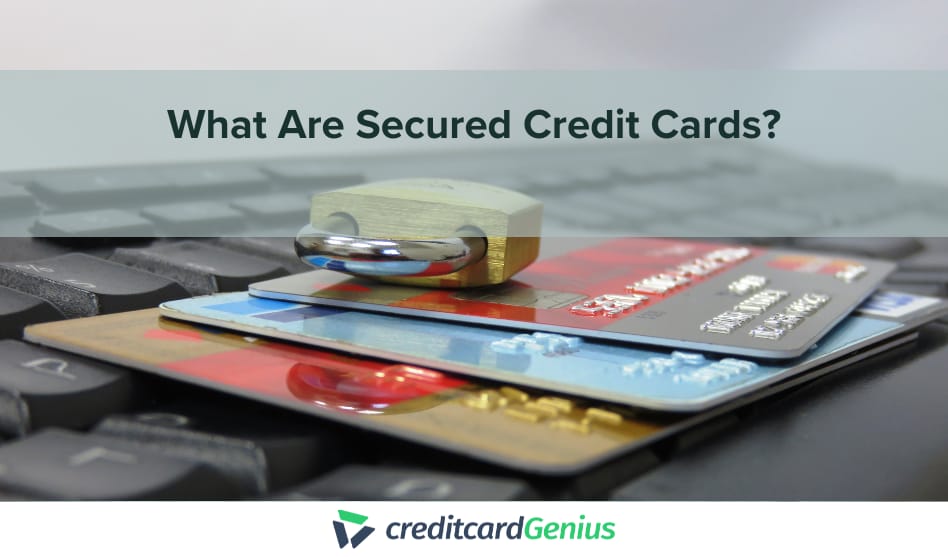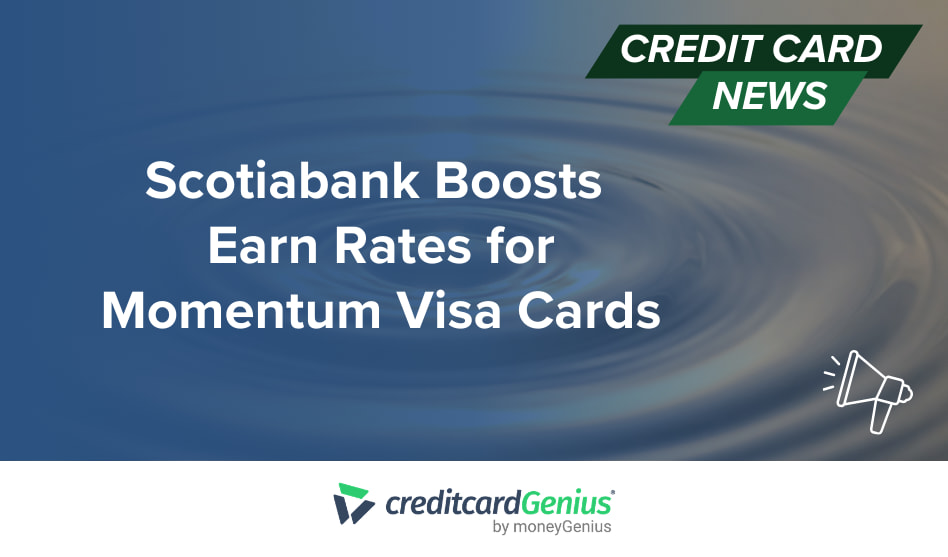Moving to a new country is full of challenges, and learning how to build a credit score in Canada is just one of them. The most effective tools to do this are credit-building products and credit cards.
Fortunately, most major banks offer credit cards tailored for newcomers. These typically have easier eligibility requirements, and the best newcomer credit cards often provide a few perks, including opportunities to earn rewards or cash back.
Below, you'll find an in-depth look at the options available for newcomers to Canada, along with explanations of how and why you need to build a credit score here in your new home.
Key Takeaways
- Building a good credit score can help you get approved for credit products and earn better interest rates.
- To build your credit score, open a bank account and credit card that reports to credit monitoring bureaus.
- Make your bill payments on time and in full for maximum impact.
Never miss an amazing deal again + get our bonus 250+ page eBook for FREE. Join 50,000 other Canadians who receive our weekly newsletter – learn more.
Why do you need to build your credit score?
While it may not seem important at first, there are quite a few things a good credit score will do for you, including:
- Make it easier to get approved for credit
- Provide access to lower interest rates on big loans, such as cars and mortgages
- Provide access to better terms on loans
- Provide access to the best credit cards
There are quite a few people who need to start building their credit file from scratch. This includes newcomers to Canada, students, and really anyone who has never applied for a credit product in Canada before.
On top of that, if you have several negative entries on your credit report (such as missed payments or bankruptcies), you'll have bad credit. You'll need to work on improving your credit scores until you're back in the "good" range or better.
Do newcomers have a credit score?
Depending on the credit score you had, you might be pleased or frustrated to learn that your credit score doesn’t move with you to Canada.
Unfortunately, there is no global credit bureau or reporting system. Instead, each country has its own individual laws and guidelines regarding credit and its regulation.
This means that as a newcomer, you don’t have a Canadian credit score, which can make it challenging to get favourable interest rates or approval for things like loans or even rental housing.
In 2024, Equifax introduced the Global Consumer Credit File, intended to help and encourage lenders to provide Canadian newcomers with credit products. Equifax intends to expand this program, so more newcomers can bring their credit scores with them.
How to build your credit score: 9 steps
To build your credit score as a newcomer, you should begin by opening a bank account, consider getting a credit card, look for a cell phone plan, and pay all bills on time, preferably in full.
Here's a full list of steps you can take to build up your credit:
1. Open a bank account
This won't actually increase your credit score, but opening a bank account is a must for anyone looking to establish their credit score. You'll need a place to deposit paycheques and to make bill payments.
You'll need a social insurance number (SIN) to do so, but once you have that, there are several newcomer packages offered by the big banks that you can consider. These are designed to streamline the banking process and give you access to credit, banking products, and guidance.
Here's a list of the newcomer bank account packages and what they offer:
| Newcomer package | Annual fee | Features and benefits | Learn More |
|---|---|---|---|
| RBC Newcomer Advantage | $11.95 per month (waived for the first year) | * Up to a $15,000 limit on a credit card * Free, unlimited transactions and Interac e-transfers * No fees for International Money Transfers * Access to an RBC Cash Back Mastercard, no credit history required * Banking services available in 200 languages | Learn More |
| BMO NewStart Program | $17.95 per month (waived for the first two years) | * Pre-arrival bank account application available * No fees for global money transfers * Access to a BMO CashBack Mastercard, no credit history required * Cash bonus for renting a safety deposit box * Significant welcome bonus | Learn More |
| CIBC Smart Account for Newcomers | $16.95 per month (waived for the first two years) | * One free non-CIBC ATM withdrawal per month * Access to several CIBC credit cards, no credit history required * $0 transfer fees for CIBC Global Money Transfers * Free 12-month Skip+ free trial * Valuable welcome bonus | Learn More |
| National Bank Newcomer Banking Package | $15.95 per month (waived for the first three years) | * Unlimited electronic (mostly debit) transactions * Immigration resource pages * Personalized phone support * Access to several National Bank credit cards, no credit history required * Monthly fee can be waived for two more years if other National Bank products are opened/used | Learn More |
2. Get a credit card
An excellent way to start building your credit score is with a credit card – you can use it to make payments for purchases you’d make anyway. When your bill comes, pay it in full, and the credit card company will report your responsible payments.
You may think that newcomers have a limited selection of credit cards available to them, and it's true that most credit cards require a credit score of at least 660 for approval. However, there are a couple that have a lower score requirement than this, and various newcomer programs (as mentioned above) can offer access to certain credit cards even if you don't have a Canadian credit history.
Newcomer program aside, here are a few of the best credit cards for newcomers:
| Credit Card | Annual Fee | Features | Earn Rates | Apply Now |
|---|---|---|---|---|
| Tangerine Money-Back Credit Card | $0 | * Choose your own categories to earn 2% cash back in * No annual fee | * 2% cash back on purchases in up to 3 Money-Back Categories * 0.5% cash back on all other purchases | Apply Now |
| Home Trust Secured Visa Card | $0 | * Near guaranteed approval * No annual fee | * None | Apply Now |
| Neo Secured Mastercard | $95.88 | * Up to 5% cash back with Neo partners * Low $50 security deposit requirement | * Average of 5% cash back at partner retailers * 1% cash back on gas and EV charging, up to $500 spent monthly * 1% cash back on groceries, up to $500 spent monthly | Apply Now |
| KOHO Essential Mastercard | $48 | * Low foreign exchange fee of 1.5% * Earns up to 2.% on the balance | * 1% cash back on groceries, restaurants, and transportation | Apply Now |
3. Make sure you always pay your bill in full and on time
Once you get a credit card, you'll want to ensure you pay your bill on time, and in full.
First, you don't want to be late for your payments. Missing payments will be reported to your credit report and will have a negative impact on your credit score.
You do have the option to make a minimum payment every month, but try to avoid doing this. You’ll end up carrying a balance that will be charged a high interest rate. This can really add up over time, making it harder and harder to pay off your credit card.
4. Don't use more than 30% of your available credit
While you may have plenty of credit available, to maximize your credit score you don't want to use more than 30% of it. This is called credit utilization, and credit bureaus give heavy weight to this factor.
When you start using more of your credit, it can appear to lenders as though you may be in financial distress since you’re not paying down your balance. This may make them less likely to lend you money.
It's okay to go over that number once in a while, but try to keep it under 30% whenever possible to get the best credit score.
5. Limit the number of cards you apply for
Every time you apply for a new credit card, the issuer will generate a hard credit check on your credit report. So, watch how many cards you apply for, especially when starting out.
These credit checks will cause a slight decline in your score. If you apply for too many credit cards in a short time frame, it can appear to other lenders that you’re experiencing financial troubles. Your score will then start to drop even more than usual.
6. See if banks will use your credit history from another country
There are many credit card issuers that operate in countries all over the world, and it's possible they can access your credit report in your home country to help your credit here in Canada.
Here is one bank/issuer that can do this for you:
American Express
American Express has a program to help those who’ve moved to get a credit card in their new country. Start by applying for an Amex credit card in your home country. Then, call Amex to transfer your account to Canada where you can apply for new credit.
To do this, you must have had an Amex credit card for at least three months before moving from an eligible country. Contact American Express customer service for details.
You can learn more about Amex's Global Card program here.
7. Get a cell phone plan
This may seem like a strange thing to do, but getting a cell phone contract is a valuable and convenient way to boost your credit score.
When you get a cell phone plan, the phone company runs a soft credit check on you. Since they're extending credit to you in the form of a free or discounted phone, they check to ensure you'll be paying them back through your monthly phone bill.
Since this is a credit product, your phone plan appears on your credit report. Make your payment on time and it will improve your score. Any missed payments will be added to the report.
Newcomers don't typically have much trouble getting a phone plan. You don't need to provide a social insurance number, you just need to be able to confirm your identity and address, which is best done with a driver's license.
The Big 3 cell phone companies
The cell phone industry in Canada is dominated by these three companies:
- Bell: Pay $80 per month for 100 GB or $65 per month when you bundle with internet.
- Telus: Pay $25 per month for pay-per-use data or $70 per month when you bundle with internet.
- Rogers: Pay $70 per month for 100 GB or $65 per month when you bundle with internet.
Note: These plans are current as of September, 2025.
8. Vary your credit types
This may be hard to do at first, but having several different types of credit can improve your score.
How? One of the areas that factor into a credit score is the mix of credit types. So, having a credit card open in conjunction with something else, like a loan or even a cell phone, will increase your score.
9. Keep your old credit cards open
The length of your credit history is also a factor in your score. The longer you have credit products open, the longer your history. And this shows that you may be a more reliable lender.
As a newcomer to Canada, what does that mean? Try and keep your first credit card account open as long as possible, as it will maintain a longer credit history.
FAQ
How can I build my credit fast in Canada?
Try to open a Canadian credit card before you move here. Once you have a credit card, pay off the card in full every month and don’t overextend yourself. Keeping your overall debt low can help build your score.
How do I build a credit score as a newcomer in Canada?
Request credit by opening a bank account with a credit-building feature, credit card, or cell phone account. Since all of these payments are reported to credit monitoring bureaus, you’ll gradually build credit history and a credit score.
Can a newcomer to Canada get a credit card?
Yes, look for a credit card that has low credit score requirements or select a secured credit card,which has near-guaranteed approval. With a secured card, you’ll make a deposit that becomes your credit limit.
How does a beginner build credit?
Start off by opening a credit card or an account that has regular payments, which are reported to credit monitoring bureaus. Make your payments on time and in full to keep your account in good standing and build your score.
creditcardGenius is the only tool that compares 126+ features of 228 Canadian credit cards using math-based ratings and rankings that respond to your needs, instantly. Take our quiz and see which of Canada's 228 cards is for you.









































Comments
Leave a comment
Required fields are marked with *. Your email address will not be published.